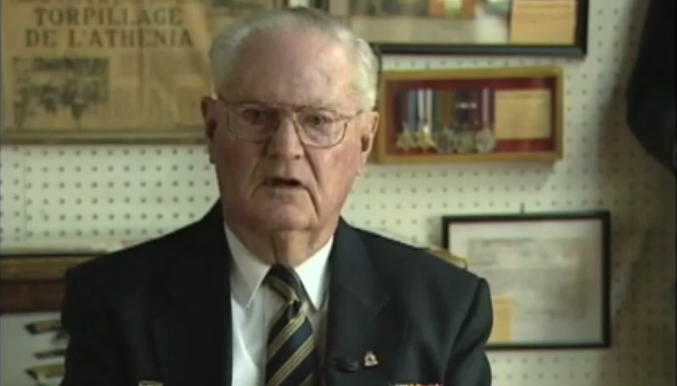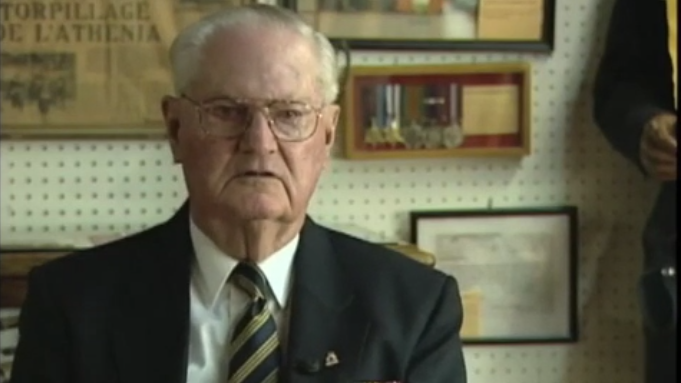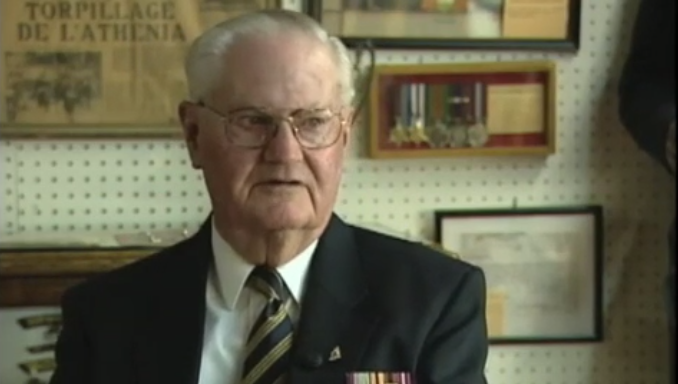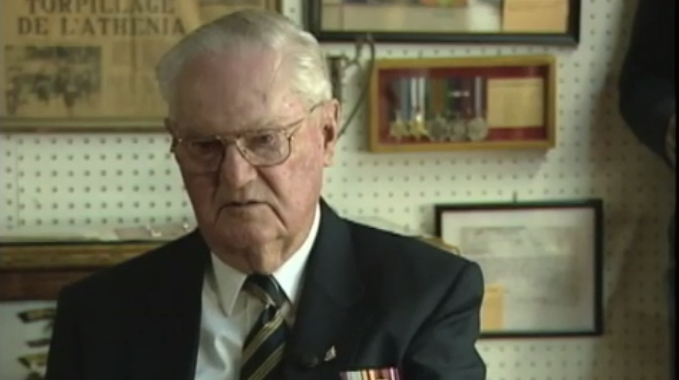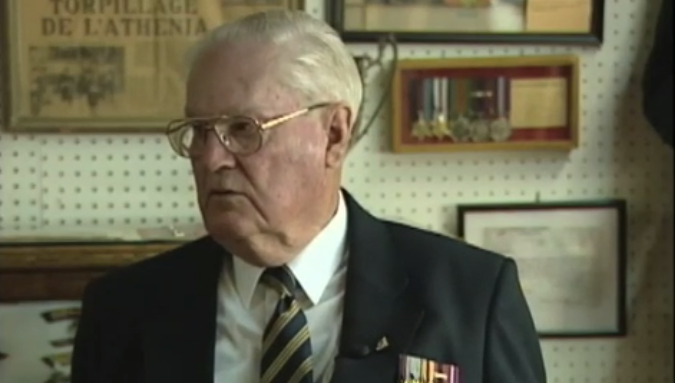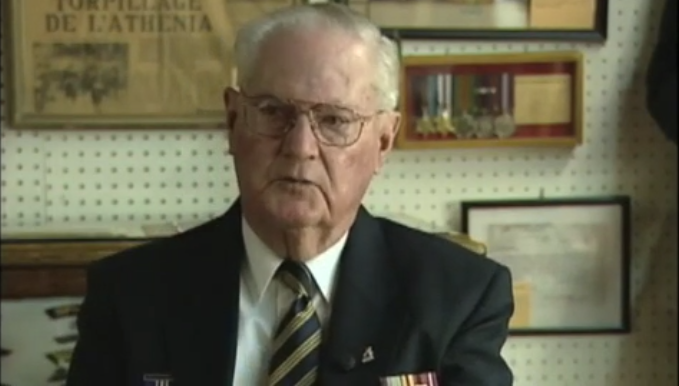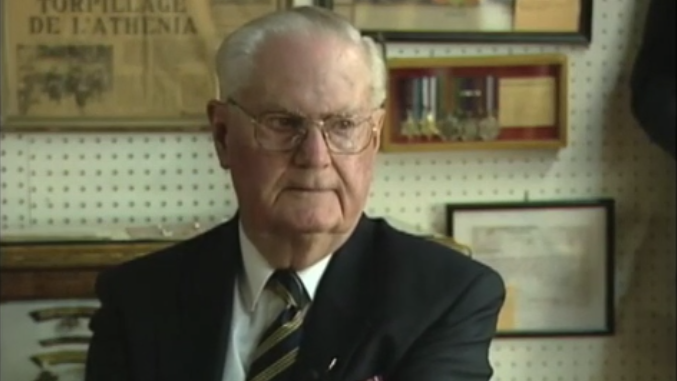Escape From Sulmona
Heroes Remember
Escape From Sulmona
Interviewer: After the Italians capitulated,
what happened to the POWs?
Well in our particular camp, we'd been guarded by Italians and
they just took off. And we knocked a hole in the wire and the
senior British officer was, wanted to march everybody down south,
meet the armies coming up and we were supposed to take over
so many men each and lead them through, and the Canadians
wouldn't have anything to do with that. We, we broke off by
ourselves, in groups of 2 or 3 and we all headed up over
the hill. I guess they cleared the camp out and we just nicely up
the hill and the Germans arrived and they were firing at us.
So the next morning they came up and marched, a good most of
them back down again, they, they spent one night out and they
were completely lost, and we were good boy scouts we had our
Red Cross parcels and we survived for a couple of months by
killing sheep and stealing potatoes and begging food,
and so about 20 of us Canadians, we all got through.
Interviewer: Just to back up a moment, Mr. Spear. Why was it
that the Canadians weren't going to go with the British?
Well it just doesn't, they didn't think there was any hope of
marching a big crowd, you know through the German lines, there,
you know, they weren't really lines not like World War I,
but they were all over the place, they had guns and they had
tanks and they had jeeps, and we figured, if you're only going to
get through, you gotta to go through 2 or 3 at a time, you know.
Interviewer: So how many Canadians were there all together?
About 20, I suppose.
Interviewer: So you and roughly 19 other fellows...
Broke up, just divided up. I was with two other fellows,
the others were groups of 2 mostly or three.
Interviewer: So these little groups...
All found their own way out... through different,
no two did it the same way, but we all made it.
Interviewer: How did your group make it?
Well what we did, we crawled up over this mountain behind the
camp and down the other side and there's a little village there
and we got talking to the people and they were friendly and they
showed us a cave up in the woods, on the side hill. So we thought
well, we had, we had a little food we carried out with us,
we thought we could wait there because they kept saying,
"Well, the Americans are coming, the Americans are coming."
And we thought best thing for us to do is, rather than try and go
through the lines, just sit here in this cave and some day
they're going to arrive and so we did that for about 6 weeks.
Then it started to get so darn cold, we knew we had to move.
So in the meantime, we'd been going into the village occasionally
and sometimes the ladies would bring out a pot of food out, and
we had long ago used up our own food, of course. So eventually
we decided, well we've got to get out of here so we started
walking south. We walked three or four days, and at night mainly,
and on the top of the mountains, keeping away from the valleys
where the vehicles would be, and we had some close shaves,
we were almost discovered two or three times but we managed to
evade them. And eventually we got down, one night and almost dark
we met this Italian farmer or peasant and asked him if there were
any Germans around and he said, "No." He said, "the Americans are
up in that little town, little town up on the hill." So we went
up on the hill and there was a Bren gun carrier outside a wine
shop, nobody in it, and we went in. There were 4 or 5 Canadians
lined up at the bar. They were, they jumped right out of their
skin, we started talking English to them. So they drove us back
in their Bren gun carrier to where they were located. They were
way out in front probing, to find out where the Germans were.
After that we were, the first trip by mule, then by truck,
then by train, then by boat back to England.
Related Videos
- Date modified:



